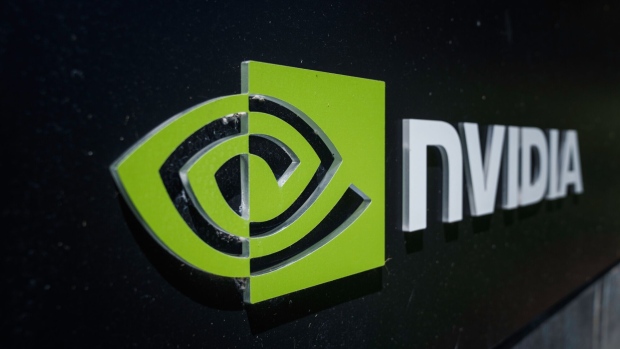Nov 15, 2023
Tencent Stockpiled Nvidia AI Chips for ‘a Couple of Generations’
, Bloomberg News

(Bloomberg) -- Tencent Holdings Ltd. dismissed concerns that US export controls will constrain its AI development capabilities, at least for the foreseeable future.
The Shenzhen-based company has stockpiled Nvidia Corp.’s H800 artificial intelligence accelerators, enough to develop its proprietary Hunyuan AI model for at least another couple of generations, President Martin Lau said on an analyst call after earnings on Wednesday.
“Right now we actually have one of the largest inventories of AI chips in China among all the players,” Lau said. “We were the first to put in orders for H800 and that allows us to have a pretty good inventory of H800 chips. So we have enough chips to continue our development.”
The Biden administration in October escalated export controls on AI semiconductors heading to China, depriving the Asian nation from access to a broad range of the world’s best AI-training hardware. The purpose of the measures is to prevent China’s military from obtaining the advanced technology, Washington argues, but they’re also making business harder for the country’s private sector.
Elsewhere in China, AI industry veteran Kai-Fu Lee’s unicorn startup 01.AI has been buying up the Nvidia chips it needs to develop its own foundation models, with Lee saying the company has enough semiconductors for the next 18 months.
China AI Startup Stockpiled 18 Months of Nvidia Chips Before Ban
Kuaishou Technology has stockpiled 10,000 Nvidia A800 chips, as it seeks to make AI an integral part of its platform, Morningstar analyst Kai Wang wrote in a September note, citing a meeting with the company.
Going forward, Tencent will aim to make more efficient use of its AI chips, Lau said. It’ll look to compartmentalize its best-performing chips for training tasks and the rest for the less computationally intensive inference tasks. The company is also trying to seek out domestic suppliers for its AI training chips, Lau added.
He did say Tencent’s cloud computing business may be impacted by the US export controls.
“We feel that the chip ban does actually affect our ability to resell these AI chips through our cloud services, and that’s one area that may be impacted,” he said.
For more on Tencent’s third-quarter earnings, click here for our TOPLive blog.
--With assistance from Zheping Huang, Sarah Zheng and Jane Zhang.
©2023 Bloomberg L.P.





